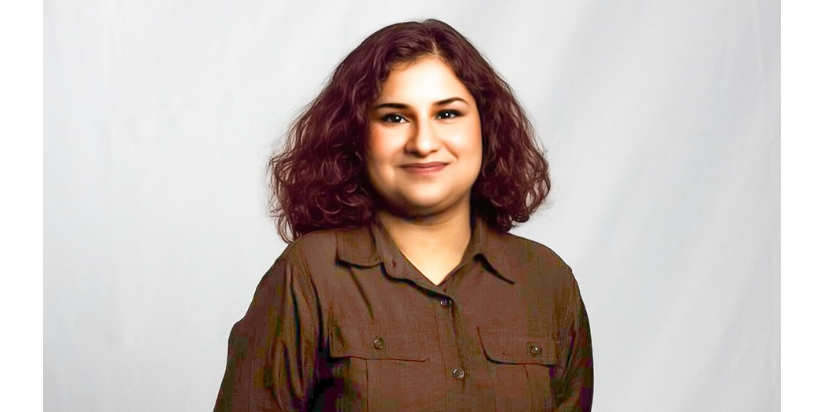
IfP Graduate Studentship Award recipient aims to revolutionize online learning
By Tedd Konya
Naaz Sibia’s online learning experience as an undergraduate student during the height of the COVID-19 pandemic sparked her passion for creating resources that provide a more equitable educational experience. Her research aims to design tools that better support students in the event of another pandemic, as the existing ones struggled with lack of engagement and inadequate assistance.
Supported by an Institute for Pandemics Graduate Studentship Award, Sibia is working toward these goals as a doctoral student in the Department of Computer Science in the Faculty of Arts & Science. Her work involves designing interventions to make participation in computing help-seeking forums more comfortable, using self-explanations to encourage conceptual understanding, and creating psychological interventions to foster a sense of belonging among computing students.
At the onset of the pandemic, when schools and universities shifted to online learning, the existing learning platforms were inadequate, especially in assessing a student’s level of understanding. Sibia observed students were not engaging with online videos effectively, by watching them too quickly or not at all. With co-supervisors, Michael Liut, Tingting Zhu and Carolina Nobre, she is integrating Large Language Model (LLM) prompts to guide students in generating better explanations and receiving the support they need.
The goal is to provide opportunities for students to test their understanding and avoid the pitfalls of simply watching videos at double speed or not paying attention. Leveraging LLMs, such as ChatGPT, Sibia intends to offer students rapid feedback, providing better support when they struggle to understand concepts or are challenged with Socratic questioning. “Artificial Intelligence (AI) can support educators by ensuring that students receive high-quality education and equitable resources, without replacing the essential human element of monitoring and mentoring student progress,” says Sibia.
"Leveraging AI will be crucial to helping us be better prepared for the next public health emergency or pandemic. The interdisciplinary research conducted by Sibia and her co-supervisors is a clear example of utilizing the groundbreaking research at the University of Toronto to ensure we are better prepared for the future,” says Nelson Lee, Institute for Pandemics Director.
Sibia has already had research success that includes designing and implementing interventions that significantly improved students' feelings of support and confidence, particularly for students whose first language is not English. As she continues through her doctoral program, Sibia aims to create inclusive and supportive learning environments that foster success for all students and plans to reach out to children from underprivileged backgrounds and those who require more access to computing experiences early on.
